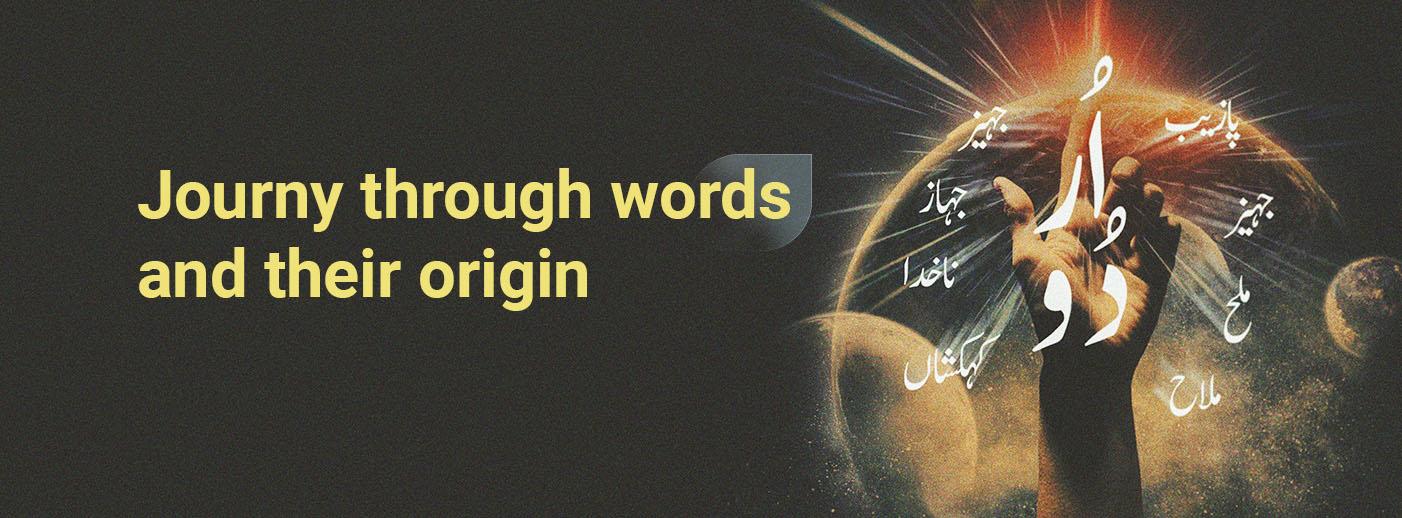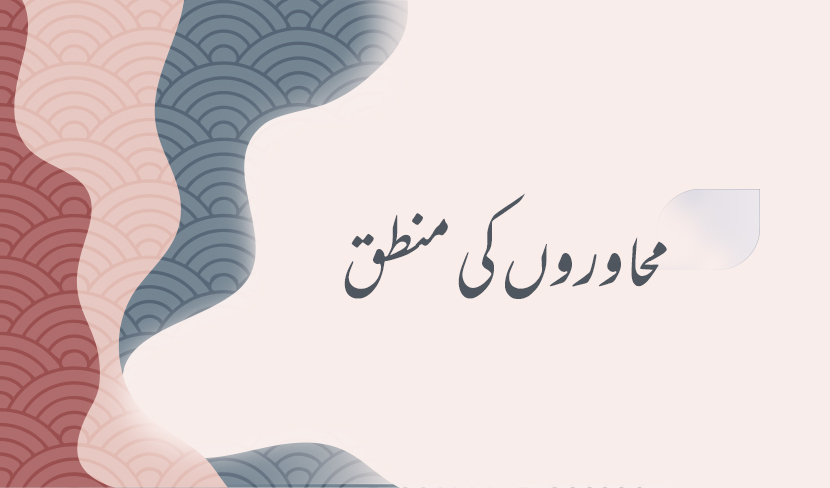Top searched
Saved words
khisyaanii billii khambaa noche
an embarrassed or ashamed person tends to vent his/her feeling by quarrelling
be-niyaaz
without want, free from want, wanting nothing, not in need, able to dispense, independent, carefree
Journy through words and their origin

It is intriguing to follow how languages can have multiple layers of meaning and nuance, and how words can evolve over time to take on different connotations and associations.
The Urdu language is a treasure trove of rich history, cultural nuances, and linguistic evolution. Let's dive deeper into few words let us start with word (kahkashaa.n) کہکشاں means "galaxy" or "cosmos" It is also called milky way . In Hindi language it is called Aakaash Ganga . The sight of kahkashaa.n at clear night sky is indeed beautifull , In literature and specially poetry the word. kahkashaa.n is used for beautiful expressions like this shair:
kehkashan dekh ke aksar ye ḳhayāl aatā hai
terī pāzeb se zanjīr nikal aa.ī hai
Sabir Dutt
"Often when I look at the Milky Way, this thought comes to mind, That a chain has slipped out of your anklet."
Paa-zeb : پازیب ، payal, an ornament worn on the feet or ankles
Kahkashan is persian word,in fact it is made up of two words: (kah) کہ, meaning dried grass and (kashaa.n) meaning pulling or dragging. Just imagine when dried grass is dagged on the wet soil, what pattern it makes? Exactly like the galaxy we see at night sky. Is'nt it.
Let us look at another such interesting word (barbaad) برباد. it is also a presian word, commonly used in Urdu, meaning destroyed. This word also has an interesting combination of two persian words (bar) and (baad). بر and باد bar is a prepostion meaing 'on' ang baad means air or wind. In Urdu poetry, (baad-e-sabaa) باد صبا and (baad-e-nasiim) باد نسیم refer to a soft and fresh morning breeze. the word "باد" (baad) has a gentle, soothing connotation in the context of a morning breeze, while word "برباد" (barbaad) has a more intense, destructive connotation. Barbaad literally means "on air" or "upon the wind", which, in the context of a strong wind, implies destruction or ruin.
Now another very familiar word جہاز'jahaz' which in Urdu is used for vessel, ship, boat and aeroplane. It is an Arabic word but in Arabic it is means 'Samaan' سامان (goods), while in Arabic ship is called "Safiina" سفینہ which is also used with the same meaning in Urdu too.
The word 'Jahaz' became 'Jahez' جہیز meaning, dowry or the paraphernalia of a bride which she takes with her to her husbands house. Word jahez is used in the same meaning in Urdu too.
Jahez eventually took the form of 'Dahez'. دہیز, more commonly 'Dahej' دھیج meaning dowry.
Parallely in Arabic, the apparatus used for a person's last rites came to be known as تجہیز "taj.hiiz" which later became complementary to the word, 'Takfiin' تکفین refering to cladding a cropse in the funeral shroud, thus the two are always used together as "taj۔hiiz-o-takfiin".
Talking about vessel and jahaz word "Mallah" ملاح came to mind. Boatman, sailor and sea man are called Mallah. This word is related to the Arabic word 'Milh''ملح', meaning salt. Since seawater is salty, initially, those who made salt from the sea were called Mallah. Later, those who ventured into the sea also came to be known as Mallah. Nowadays, even those who operate boat on freshwater lakes are referred to as Mallah
Talking about jahaz and Mallah, the word "Nakhuda" ناخدا also came to mind.
The word Nakhuda (ناخدا), which refers to the captain of a ship or boat, carries a rich etymology. While Khuda is commonly used to refer to Allah or God, it also conveys the meanings of "owner" or "master". In the term Nakhuda, "Na" is abbreviation of word ناو
"Naav", meaning boat.
This brings to mind a poignant couplet by Ameer Meenai:
kashtiyāñ sab kī kināre pe pahuñch jaatī haiñ
nāḳhudā jin kā nahīñ un kā ḳhudā hotā ha
"All boats eventually reach the shore,
Those without a helmsman have God as their guide".
Delete 44 saved words?
Do you really want to delete these records? This process cannot be undone





